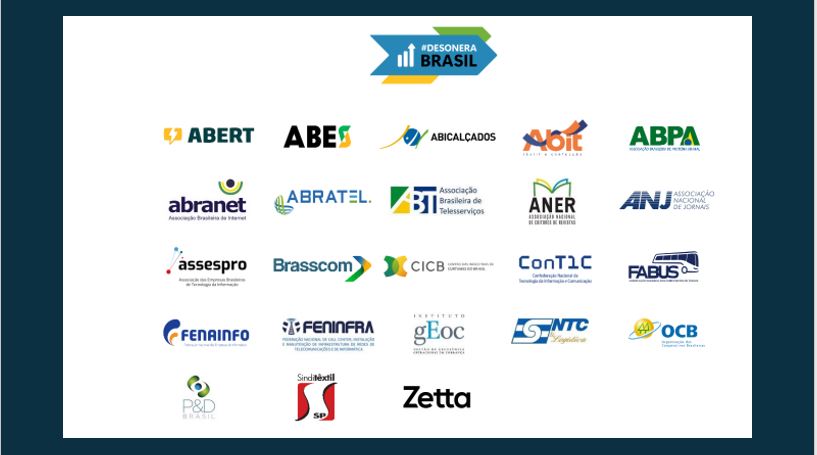
The action filed by the government at the Federal Supreme Court (STF), on April 24, 2024, to question the extension of the payroll tax exemption until 2027, puts the positive socioeconomic impacts of the measure at risk and creates a clear situation of legal uncertainty . This public policy of substitutive payroll taxation as a percentage of gross revenue promoted, in the period from January 2011 to February 2024, a growth of 9.7% in the number of jobs generated by the 17 sectors covered by this tax system, aimed at promoting formal employment. In a more recent analysis, between January 2019 and February 2024, this growth in formal jobs in the same sectors was even more significant, reaching 19.6%, surpassing the performance of other economic sectors by 5.3 percentage points. These 17 sectors currently employ 9.3 million professionals, and in the first two months of 2024 alone, 151 thousand new jobs were created. Furthermore, the average salary in these sectors is 12.7% higher than sectors that do not have this tax relief. This robust data corroborates the effectiveness of this policy in generating new jobs and increasing wages, indicating its positive impacts on the labor market.
The model was extended several times, after its scope was reduced in 2018. The renewals occurred at different political moments, with different government compositions and in the National Congress, highlighting the proven social and economic relevance of this public policy.
Recently, Bill 334/2023, authored by Senator Efraim Filho, which amends Law 12,546/2011, of conversion that positively extends payroll tax relief, had a long and complete process in the National Congress, with debates and action by the entire political spectrum, including members of the base of the current government and the party of the President of the Republic. In this process, it is worth highlighting that the debate included budgetary, legal and concerns regarding the merit of the policy.
After intense discussions, the project was approved by the National Congress. However, it faced a veto from the Presidency of the Republic (nº 38/2023), on the grounds of legal issues. However, these possible doubts had previously been debated and overcome during the legislative process, based on analyzes by advisors from the Chamber of Deputies and the Senate and a decision by Minister Lewandowski, then a member of the STF and rapporteur of another concentrated control action, filed by the Attorney General's Office (AGU), in the previous government. Given the social and economic impact that not extending payroll tax relief could cause, the National Congress rejected the Executive's veto, resulting in the promulgation of Law No. 14,784/2023.
The Executive attempted to revoke the law approved by the National Congress through Provisional Measure 1,202/2023, an attitude that is characterized as a clear deviation from the purpose of this normative instrument, due to the improper use of this emergency measure to create a second veto by the Executive. It is worth emphasizing that an MP must be reserved for urgent situations that do not allow waiting for the legislative process, which, in the case at hand, had already been completed. Due to this, the Executive itself revoked the MP, through a new Provisional Measure (nº 1,208/2024). However, he proposed a bill on the same topic and with the same content as the MP he had revoked, which is currently being processed in Congress.
It is important to repeat and clarify the context to demonstrate how inappropriate the filing of a concentrated control action by the Union is. It is an initiative that aims to invalidate all past and current legislative work of the National Congress, seeking a decision from the Constitutional Court to supersede the Parliament's broad deliberation on this topic.
The use of an extreme measure of concentrated control action puts all the concrete effects of public policy at risk, as it promotes serious tax unpredictability, including in relation to investments and hiring of workers carried out with confidence in the legislation approved and in force, with support on topics already overcome and debated throughout the legislative process.
However, based on the information and theses presented by the AGU, Minister Rapporteur Cristiano Zanin granted an injunction to remove the legal provisions that extended the replacement payroll taxation, due to the alleged lack of carrying out a budgetary impact analysis, required by the Constitution. The reporting Minister was careful to decide that the injunction would be maintained until the aforementioned analysis was demonstrated. It turns out that this impact analysis was carried out during the legislative process, as will be demonstrated in the case records.
You 17 sectors will maintain dialogue with the Powers of the Republic to address this situation of legal, economic and social insecurity, whilst maintaining respect for the legislative process already carried out and in progress. Even more so, in relation to the injunction granted by the STF, the sectors have the confidence that the reporting Minister or the court will revoke this monocratic decision that must be restricted to extreme situations, after all there was full respect for constitutional budgetary rules by the Legislature in its work care of drafting the law.












